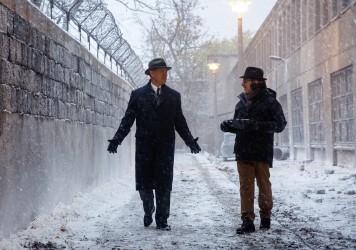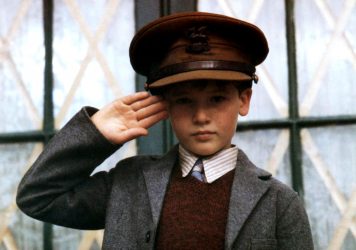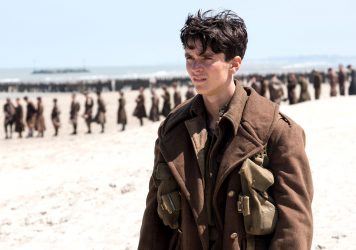A strange sort of hybrid, wounded by the internal tensions between what it might be.
Before its acclaimed stage adaptation, War Horse was a children’s book with big ambition. Through the eyes of an equine protagonist, the novel explored sweeping themes around the central dynamic of war: its arbitrary wastefulness, its exposure of human cruelty, and its capacity to bond as much as divide.
These universal themes made it a natural choice for Steven Spielberg, a director with a fondness for modern, melodramatic fables with guaranteed cross-generational appeal. But the success of the War Horse stage play presents Spielberg with challenges beyond the usual difficulties of adaptation: how to switch from puppetry to real horses? How much realism to inject into the depiction of war? And how to retain that all-age allure?
Spielberg’s answer is to adopt a form of hyper-theatricality, with real locations somehow rendered as stage-set rural idylls, with weird chocolate-box houses, and stone walls that look like polystyrene. The staging, costume and overall palette are redolent of MGM’s ‘golden age’ of Technicolor, with Devon and Picardy as the Land of Oz.
The dialogue, the narrative structure, the static movement of actors, all seem conspicuous hangovers from the stage play, which supposedly reduced Spielberg to tears. But while this theatricality expresses a unified – if transposed – style, it jars with the more obviously cinematic elements Spielberg introduces.
Whereas, in the stage play, the puppetry allowed anthropomorphic engagement with Joey, the eponymous horse, the film’s real-life horses seem strangely dead-eyed by comparison. The feats of horsemanship are impressive but the lingering shots of the horse – supposed to convey some inner emotion – remain cold.
This is exacerbated by Spielberg’s trademark visual style, built on hand-held cameras and liberal use of the close-up. Applied to War Horse this accentuates the stagy production, expressive theatrical acting, and adds little in the way of psychological insight or dramatic tension.
Spielberg seems far more comfortable in his depiction of the war itself. The first battle marks a welcome, more confident shift in the film’s tone. The depiction of the Somme is accomplished, and one scene in particular – where Joey runs into no man’s land – is breathtaking.
These scenes succeed by depicting real events in a realistic, if stylised, way. But otherwise War Horse is at pains only to allude to the gruesome truth. The whole film – presumably to secure family friendly certification – is bizarrely bloodless. Soldiers get shot, blown up, executed, but not a drop of claret is shed. When a trench is mortared, the victims form balletic shapes, mid-air. Bodies littering the battlefield fall with the geometric precision of The Giant’s Causeway.
Despite hints of brilliance, the effect is over-sentimental and unsatisfying. Good characters are good; bad ones are bad. Nuance and ambiguity are drowned out by repetition, over-acting, cheesy dialogue and a John Williams soundtrack as thick as horse manure.
And so War Horse is a strange sort of hybrid, wounded by the internal tensions between what it might be: bedside story, serious theatre, holiday movie. As a result it seems to underestimate the intelligence of its audience – kids most of all.
Published 13 Jan 2012
Steven Spielberg seems a natural choice for this family-friendly theatrical phenomenon.
Heavy-handed melodrama with flashes of brilliance.
An unsatisfying fable that fails to engage all ages.

We take stock of the (almost) complete oeuvre of one of modern cinema’s true masters.

By Mark Allison
Stories of combat and derring-do were once common on our screens. What does their decline reveal about our national identity?

Christopher Nolan’s breathtaking historical opus attempts to give the viewer a taste of what war actually feels like.